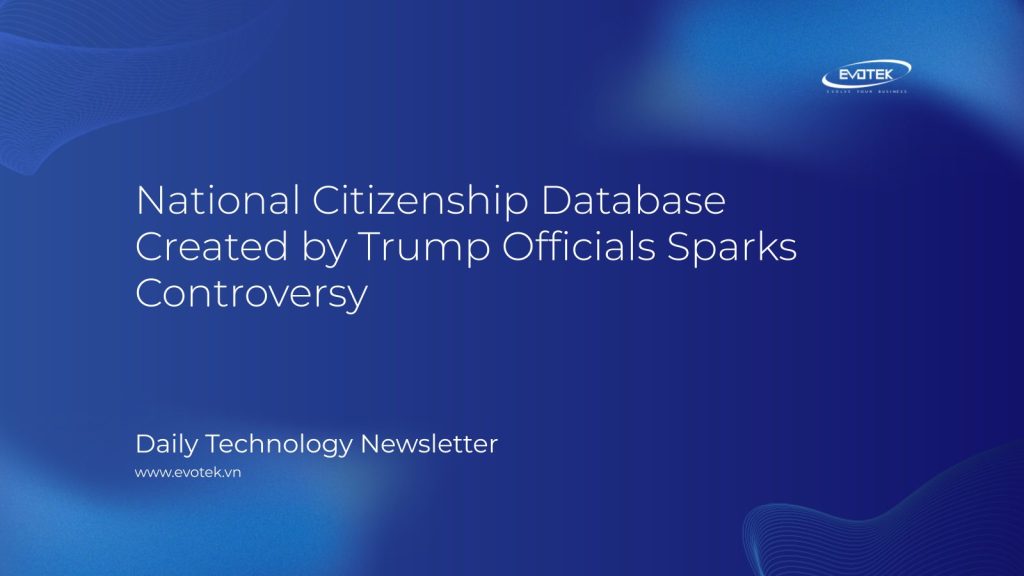A newly unveiled national citizenship database, spearheaded by Trump administration officials, has ignited a firestorm of debate over privacy, data security, and potential misuse. The database, a collaborative effort between Homeland Security and the “Department of Government Efficiency” (Doge), consolidates immigration data with Social Security information, aiming to create a searchable index for verifying citizenship and preventing alleged voter fraud.
Merging Data for Voter Verification
According to reports, this initiative expands the existing Systematic Alien Verification for Entitlements (SAVE) program, integrating it with Social Security Administration data. This centralized repository would allow state and local election officials to quickly verify the citizenship status of potential voters, a process previously reliant on cumbersome and fragmented databases.
The Department of Homeland Security (DHS) defended the database, stating that integration with the Social Security Administration “significantly improves the service offered by SAVE.” They claim that previously, agencies needed DHS-issued numbers for voter registration verification, which were less accessible than Social Security numbers.
Motivations and Concerns
The DHS statement emphasizes the administration’s focus on eliminating benefit and voter fraud among the “alien population,” a justification that has drawn criticism. Experts argue that voter fraud is exceedingly rare in the U.S., and concerns have been raised about the potential for discriminatory targeting of specific communities.
This database is reportedly among the first outcomes of Doge’s efforts to centralize access to vast troves of data on Americans from various federal agencies, including the IRS. Doge claims this consolidation is necessary to combat fraud, but critics fear the creation of a “single data hub” accessible to multiple entities, raising significant privacy concerns and sparking lawsuits.
Legal Challenges and Privacy Concerns
A lawsuit filed by union members in Maryland alleges that personal information was shared with Doge officials who had no legitimate need for such access. A judge temporarily blocked the Social Security Administration from sharing information with Doge, citing the “intrusion into the personal affairs of millions of Americans” as not being in the public interest.
Critics argue that the database was created without sufficient public engagement, violating the Privacy Act of 1974, which requires federal agencies to notify the public of new data collection and usage practices. They also question whether the centralized database undermines existing privacy and security protections within individual agencies.
Reactions from Advocates
Immigration and privacy advocates express serious concerns about the unprecedented consolidation of personal information. They worry about potential misuse of the database and its impact on vulnerable communities.
Citlaly Mora, spokesperson for Just Futures Law, stated that the database is another attempt to “weaponize the data of the millions of people that live in the U.S.” She criticized the lack of transparency and public consultation, calling it a “brazen violation of our privacy rights.”
The database’s rollout follows reports of the software firm Palantir’s involvement in developing a “mega-database” for the Trump administration, raising further concerns about surveillance and data security.
Lawmaker Concerns
Democratic lawmakers have voiced strong opposition, warning that a searchable “mega-database” of tax returns and other personal data could facilitate government spying and targeting of political opponents.
Palantir has denied building a master database and claims it does not conduct or enable mass surveillance of American citizens.
This new citizenship database is poised to remain a focal point of controversy, raising fundamental questions about government overreach, data privacy, and the potential for misuse of personal information.

 日本語
日本語 한국어
한국어 Tiếng Việt
Tiếng Việt 简体中文
简体中文